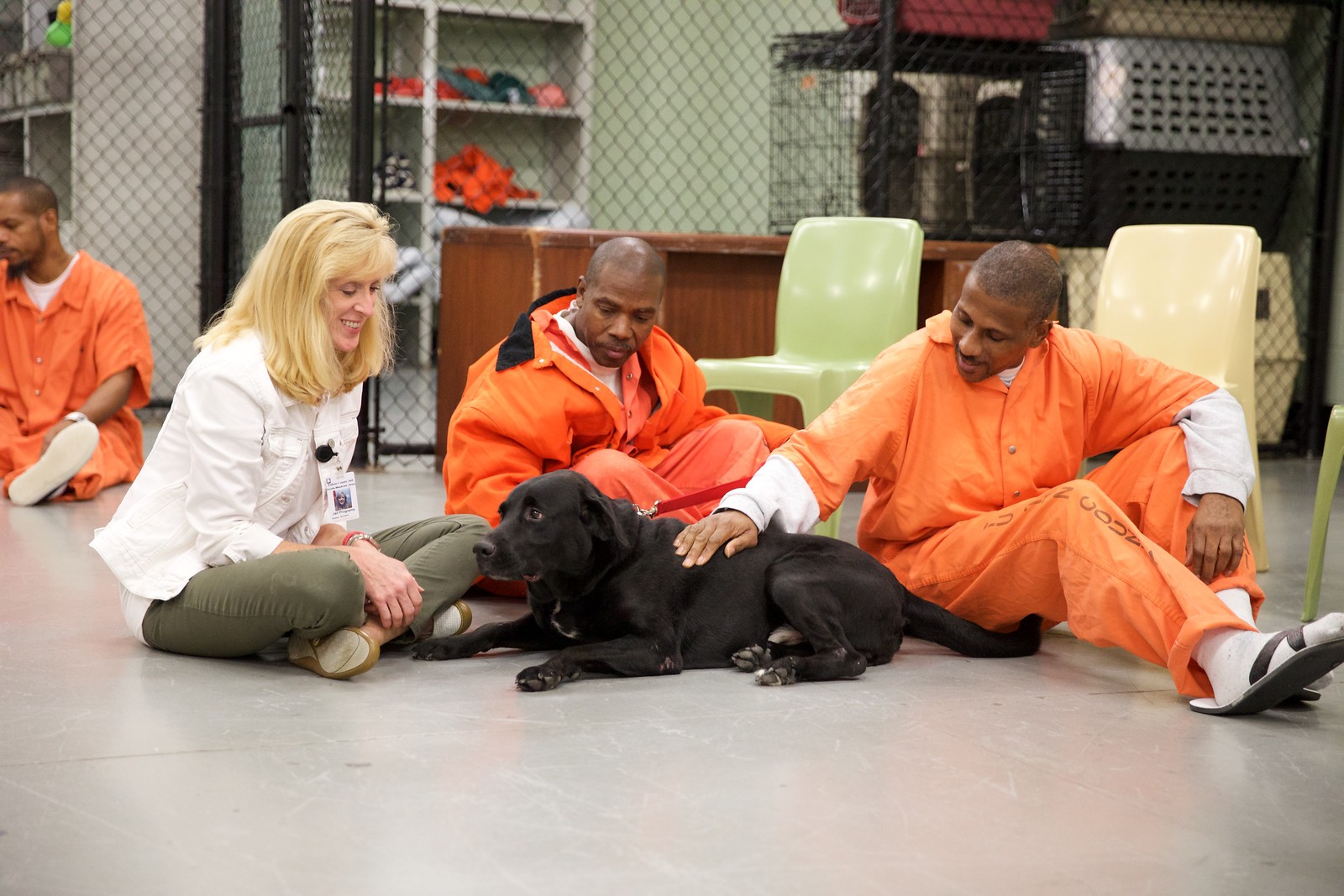We were lucky to catch up with Susan Jacobs-Meadows recently and have shared our conversation below.
Susan, looking forward to hearing all of your stories today. Let’s kick things off with talking about how you serve the underserved, because in our view this is one of the most important things the small business community does for society – by serving those who the giant corporations ignore, small business helps create a more inclusive and just world for all of us.
Incarcerated men and shelter dogs are rejected by society. Dogs end up in shelters because of human failings, and human beings frequently end up behind bars for the same reason. It isn’t reasonable to expect people to make choices that have not been modeled for them. It is far less reasonable to expect someone who has been locked up multiple times to not get locked up again, unless we are willing to help facilitate positive change. The dogs begin that process by helping to restore lost humanity in these men, and then the focused curriculum that we present to them can have greater impact. We believe that one of the most important. and least talked about, components of successful reentry is positive community. The answer to crime is not incarceration – it is kinship. Father Gregory Boyle of Homeboy Industries models this belief in his program. In our in-custody, and our out-of-custody program, we believe in standing with these men, where they are, and welcoming them back from the fringes of society. That is what positive community is all about.
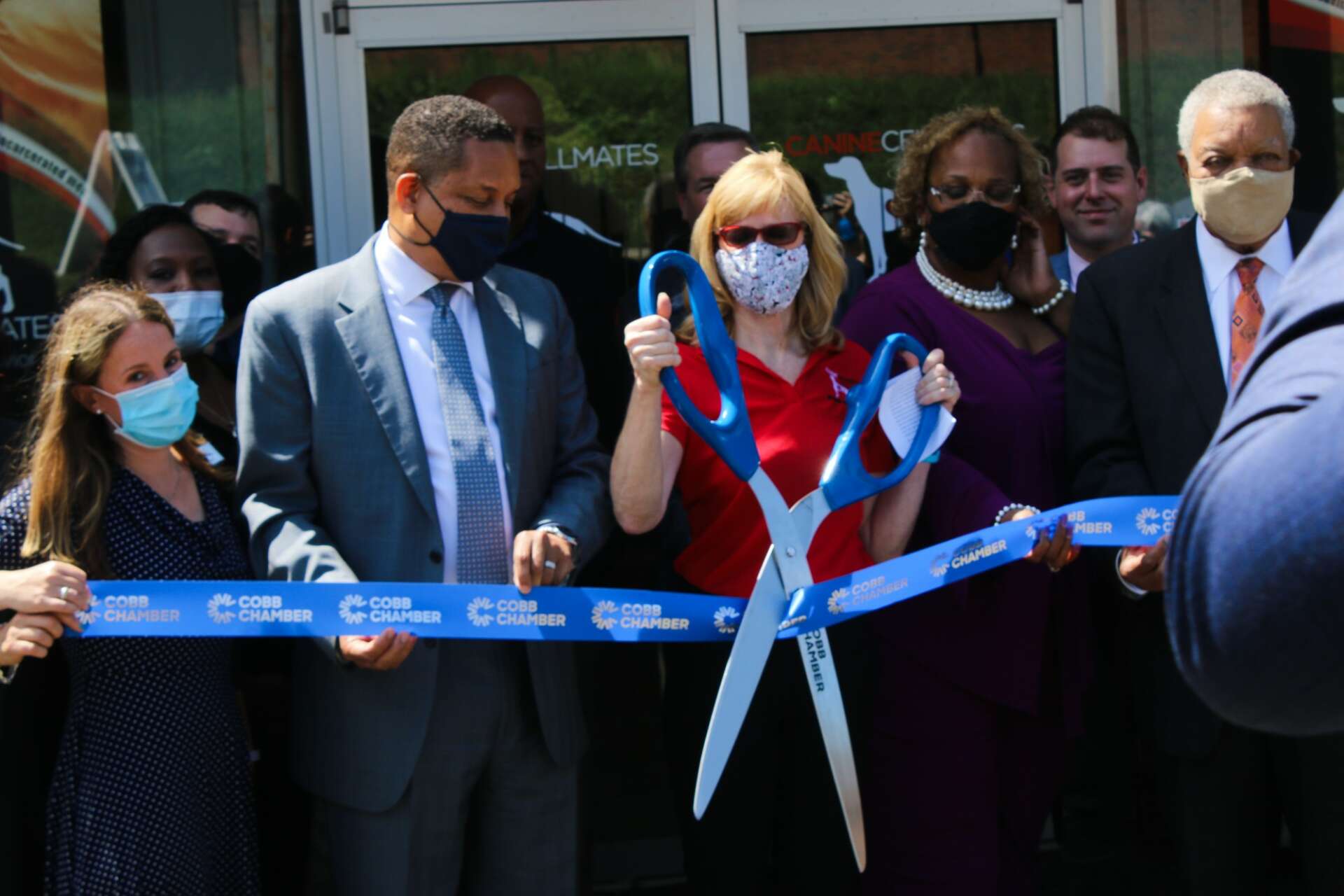
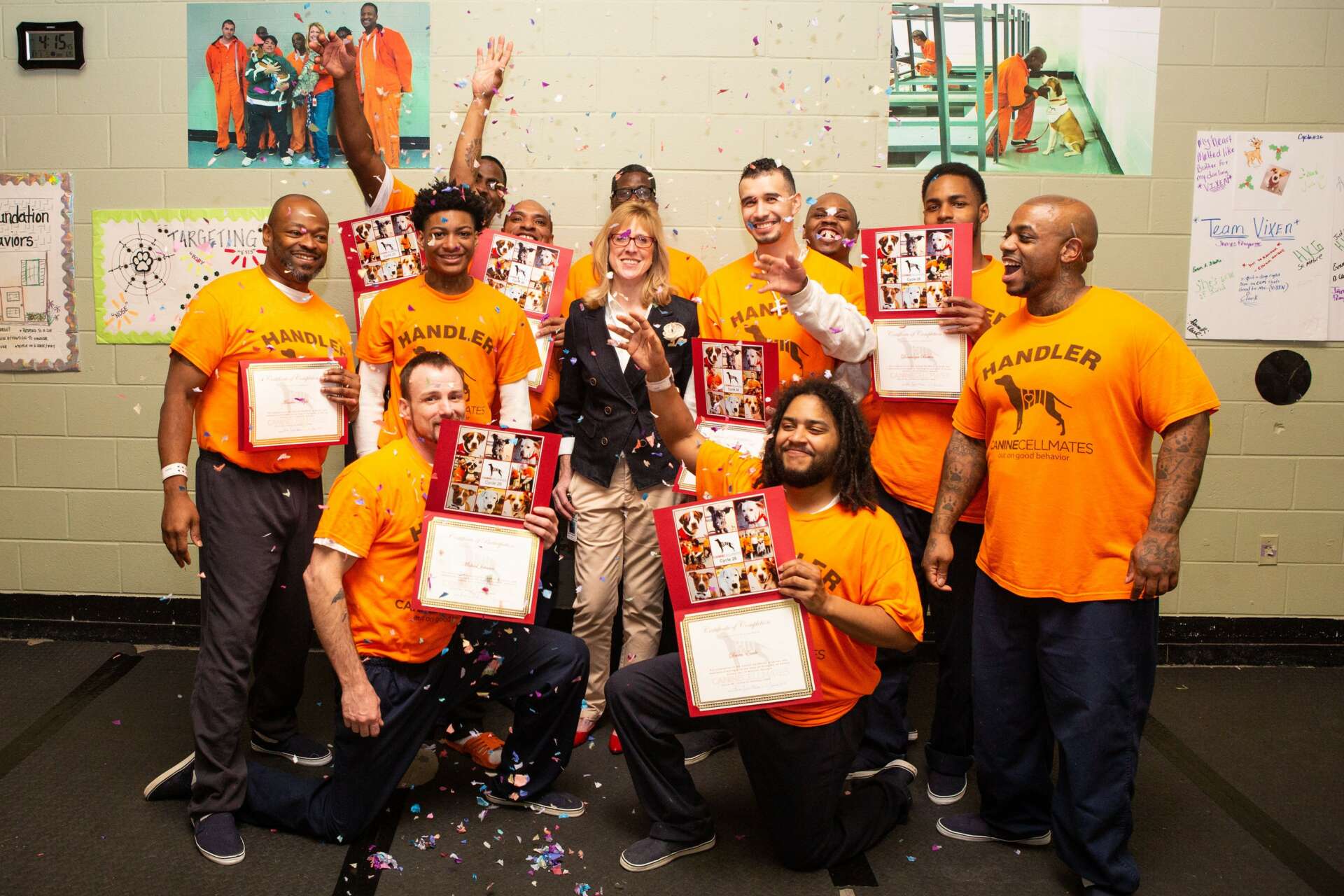
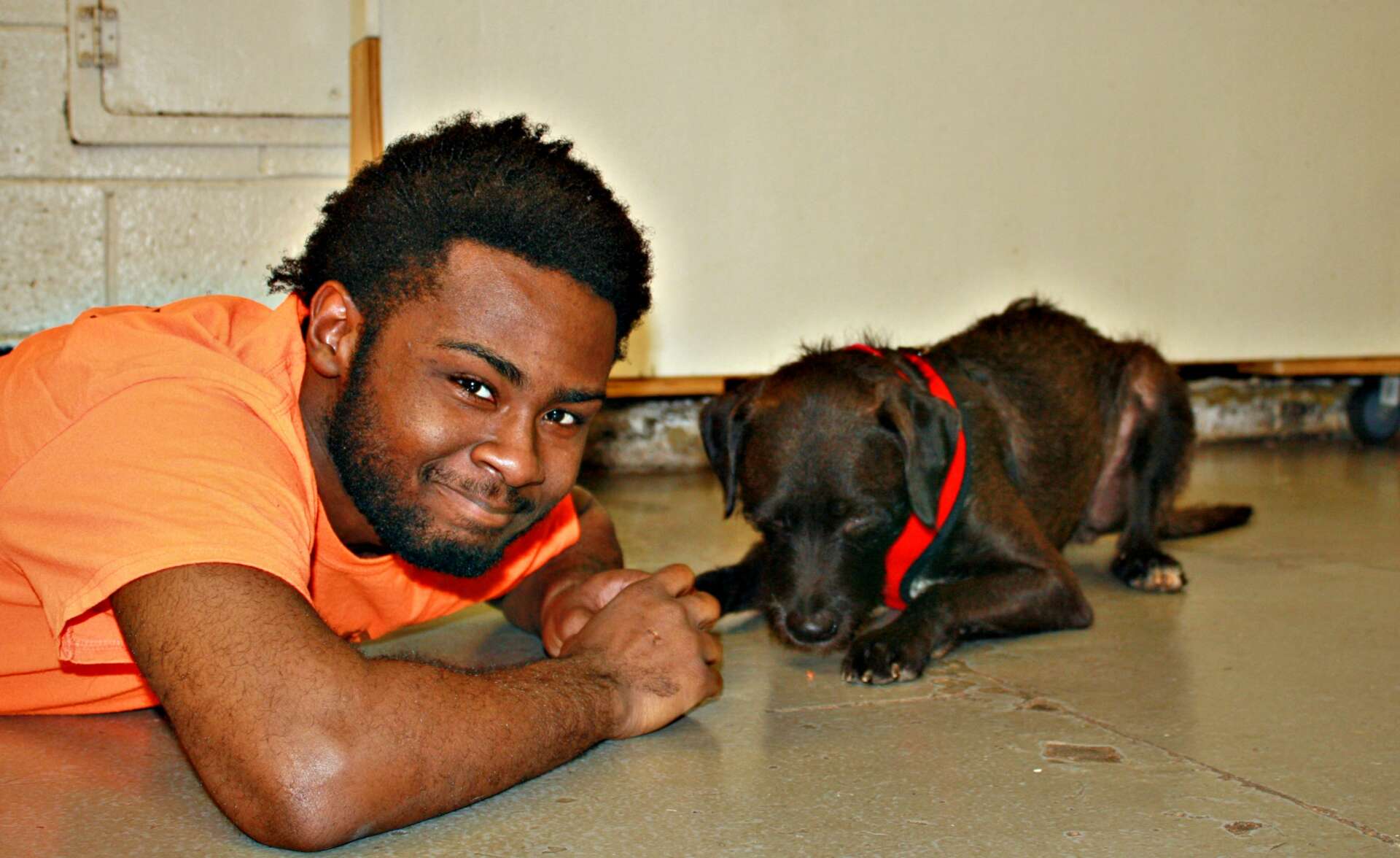
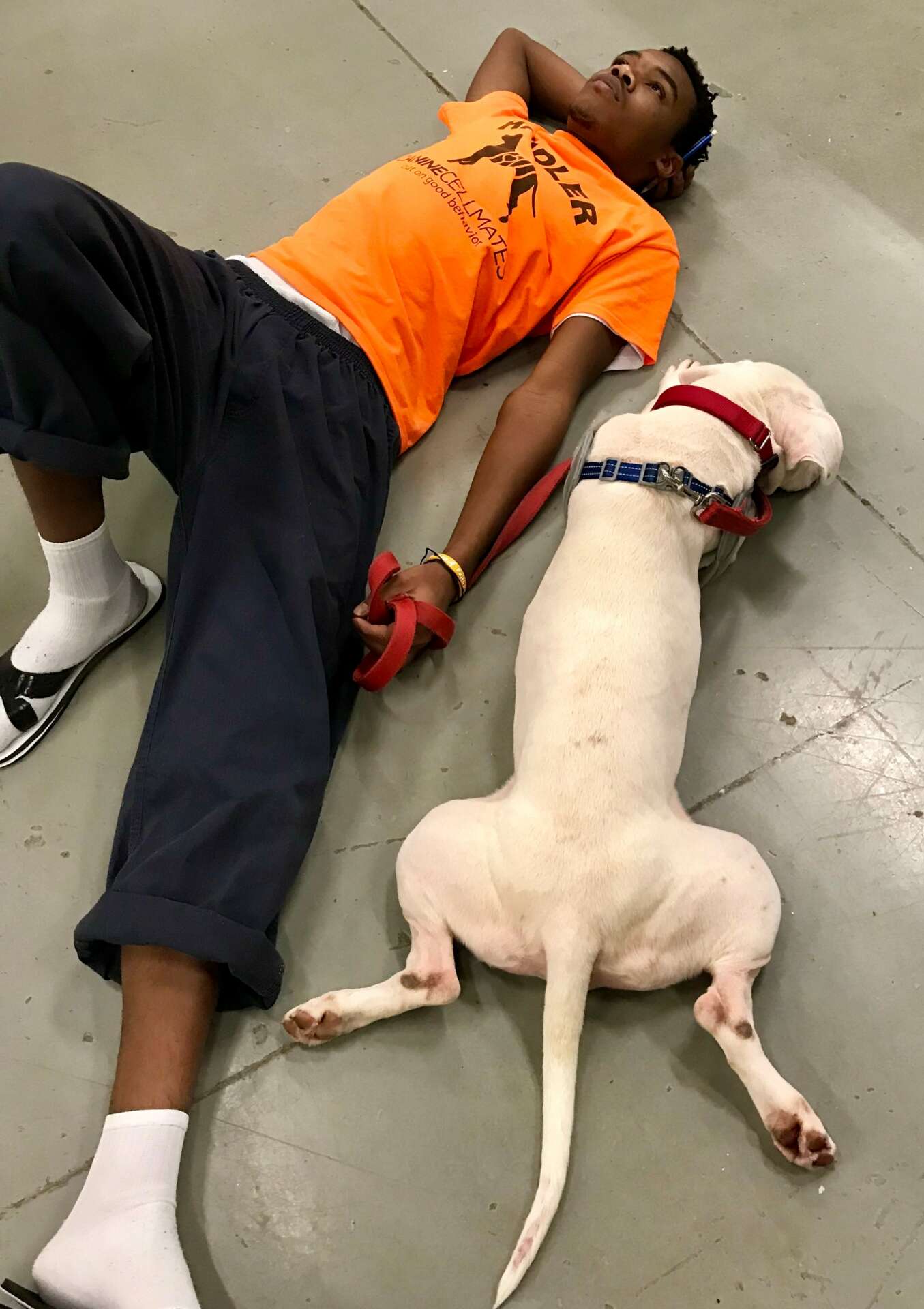
Susan, love having you share your insights with us. Before we ask you more questions, maybe you can take a moment to introduce yourself to our readers who might have missed our earlier conversations?
I have an extremely diverse professional background – from being in the military, to managing health clubs, to business ownership in the fashion industry, and a few other things in between! When I became aware of what life was life as an incarcerated person inside Fulton County Jail, I knew that I wanted to do something to help, I had heard of programs involving incarcerated persons and dogs, and as a life-time
dog lover, this was where I focused my efforts.
So many people told me that starting a jail dogs program inside Fulton County Jail would never happen, but I am glad (most of the time :) ) that I did not listen. We spent 18 months pitching, planning, and revising before our program launched on June 3 of 2013. Since that time, over 400 men have participated in our in-custody program, and over 150 dogs have been pulled from shelter, trained by incarcerated men, and adopted into loving homes.
I knew that I would fall in love with each dog that came into our program, but I did not know that I would fall in love with these men. Some of my most favorite people on the planet I have met behind bars. Our focus is on the repeat felony offender, as that is who society has rejected, and there are very few programs for them. Our goal, utilizing the magical healing power of dogs, is to present new ideas and new concepts that help to cause shift in perceptions, allowing these men to make choices that help them to remain free of incarceration. The dogs are the heart of our program, but the focus is on the men.
Last year, we took over a facility and launched a new program – an out-of-custody program modeled after our in-custody program. This program gets men out of incarceration faster – returns them to their families quicker – and facilitates positive change in their lives so that they do not continue the cycle of arrest. We become the disposition for the charge, instead of them going to prison.
Let’s talk about resilience next – do you have a story you can share with us?
Getting our program started inside Fulton County Jail was definitely an exercise in resilience! This program was very far outside the culture of this very
large urban jail, and there were many hurdles to jump, and many objections to overcome. At the end of the day, the fact that we just kept coming back – with answers and solutions – is what finally allowed this program to begin.

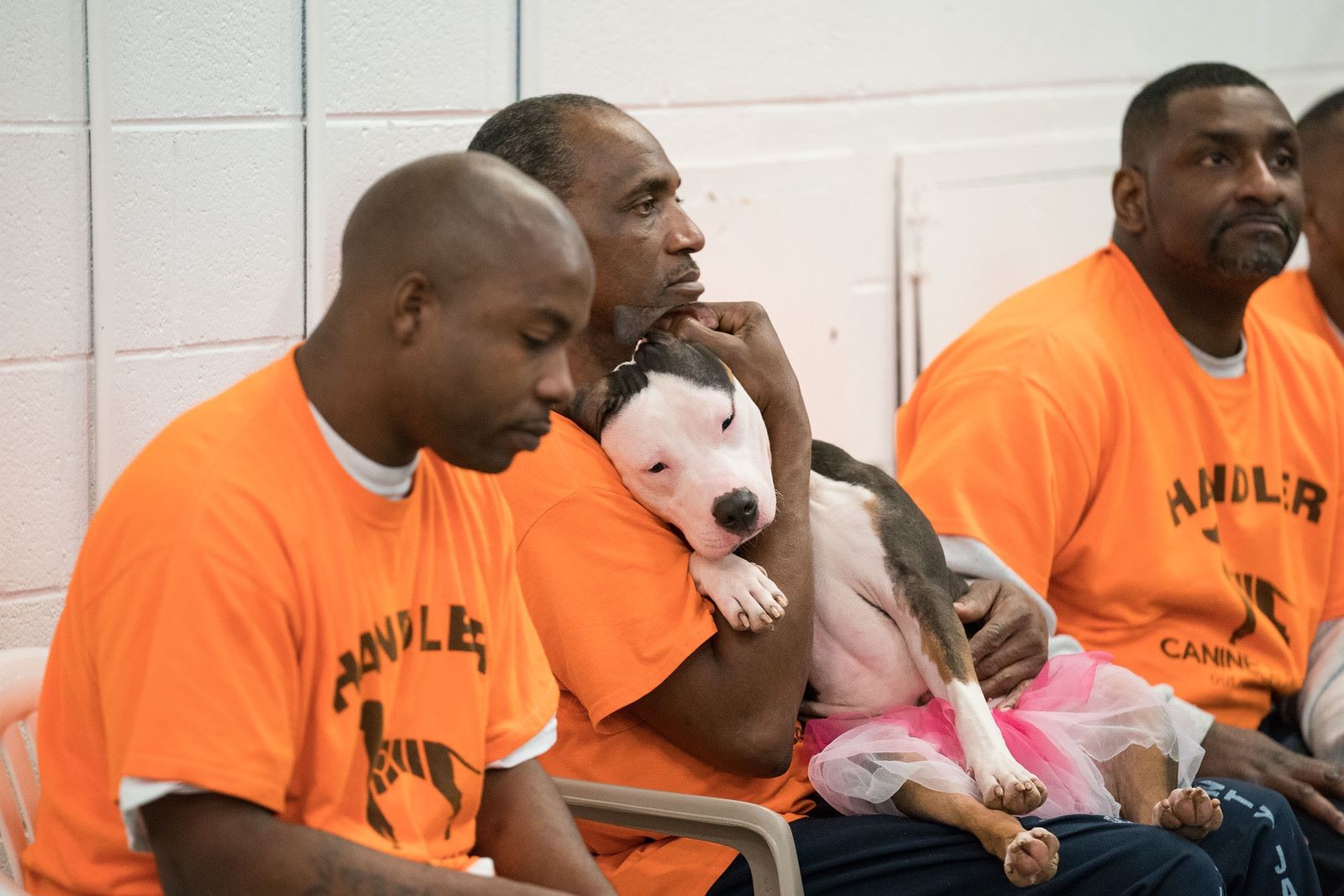
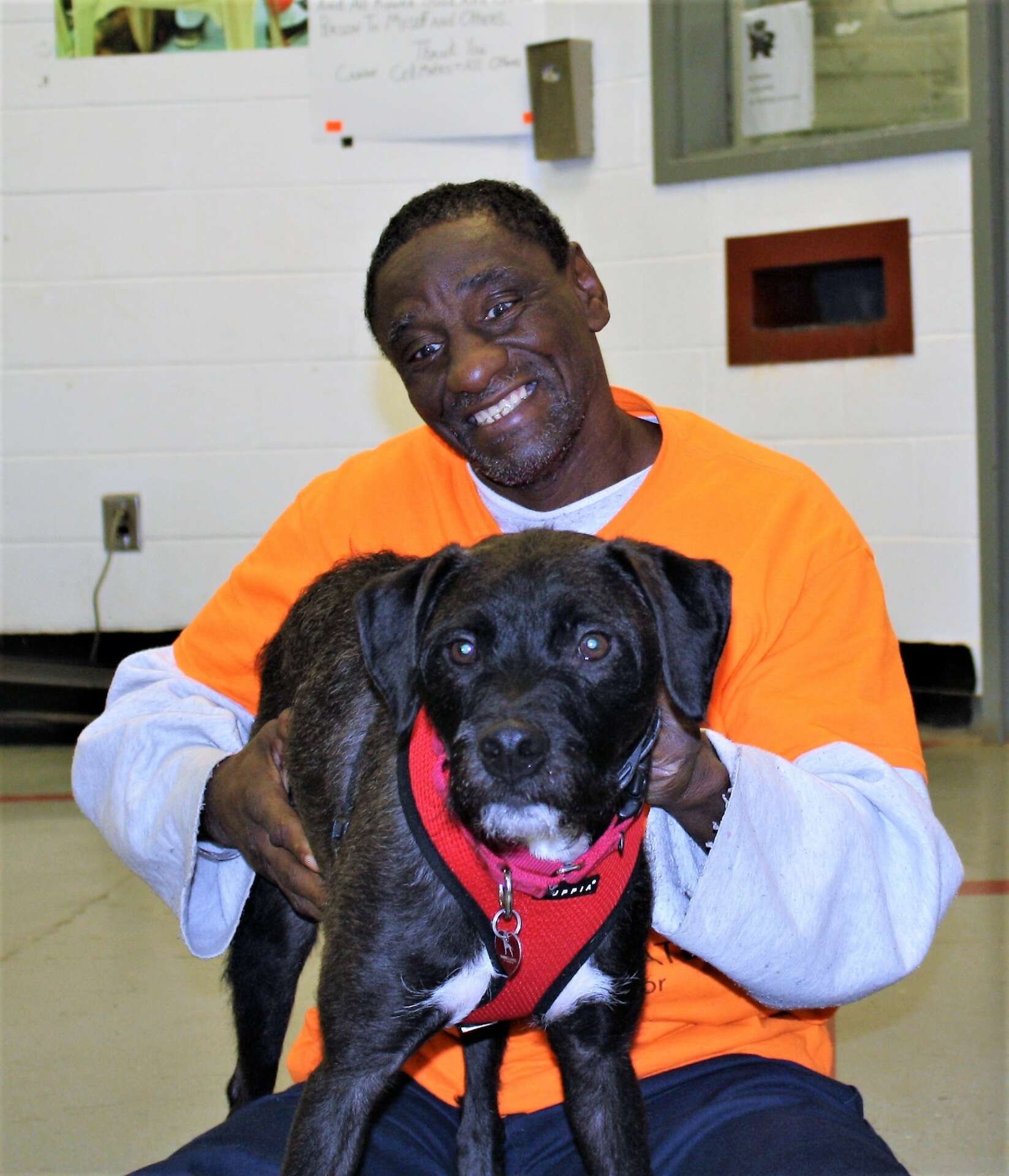

What’s a lesson you had to unlearn and what’s the backstory?
The lesson I had to learn was that I needed to be very careful not to project what I thought the men in our program should want onto them. The little house with the white picket fence, a couple of kids and a dog may have seemed like everyone’s ideal, but in fact is not what everyone wants. Success looks like many things – my measuring stick for success may work for me, but is not everyone’s measuring stick. We are fortunate to have watched so many men make substantive changes in their lives, and become better parents to their children, better children to their parents, and better citizens in their communities.
Contact Info:
- Website: caninecellmates.org
- Instagram: @caninecellmates
- Facebook: https://www.facebook.com/CanineCellMates
- Linkedin: https://www.linkedin.com/company/15762194
Image Credits
Kelly Kline Photos Blair Devereaux of Pheauxtography


